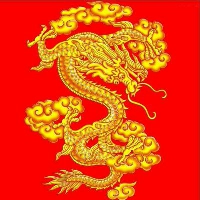Some children do not do homework because they are not interested in learning; Some children don't do their homework because they can't do it; Others don't want to do homework because they want to play outside; What's more, children do not want to do homework because they are lazy. What if the children are lazy and don't do their homework?
What to do if children are lazy and don't do homework
1. You should always contact the teacher to understand the children's comprehensive learning situation, and know the weak points of children's learning, formulate a learning plan pointedly, urge children to complete the plan, and give corresponding encouragement and rewards to stimulate children's learning interest.
2. Every time, children should review their lessons before doing their homework, and then do their homework. And we should have a discussion with our children, urging them to do homework is not just a supervision, we should also treat ourselves as students, we can take some questions to ask the children, so that children can have a sense of achievement because their knowledge can help parents.
3. For homework problems that children can't do, parents should remember not to scold children if they think they can do it. They should study with children and slowly guide and enlighten them, and let children have time for independent thinking. After children solve learning problems, they will have a sense of pride, which is extremely important for cultivating children's learning interest.
4. Parents should set an example. In daily life, parents decide to do things quickly and actively, and never procrastinate. Otherwise, the child will have a pattern, and will continue to procrastinate when doing homework.
Reasons for children not doing homework
1. I am not careful in class and will not do it. This situation exists, because the difference in IQ of children today is actually very small, but the quality of their performance is often reflected in whether they listen carefully, understand, and digest well in class. If the child does not prepare in advance, does not attend class carefully, does not listen well to the teacher, and does not understand the knowledge points of the teacher, he will probably not do his homework. After all, the probability of gifted children is one in 10000, or even one in 100000.
2. Emotional factors. For example, I was very upset and upset after being criticized by my teacher and having trouble with my friends; After being punished, the amount of homework was very heavy, which made the children depressed, thinking about those things all the time, unable to concentrate, and did not want to do homework.
3. Strategic factors. There are many parents who will assign a lot of homework after their children finish their homework. The children don't want to do homework anymore, so they slow down and don't do homework well.
What should children do if they are lazy and don't do homework? Parents should guide children to realize the importance of homework. Only in this way can children be guided to do homework on their own initiative.

